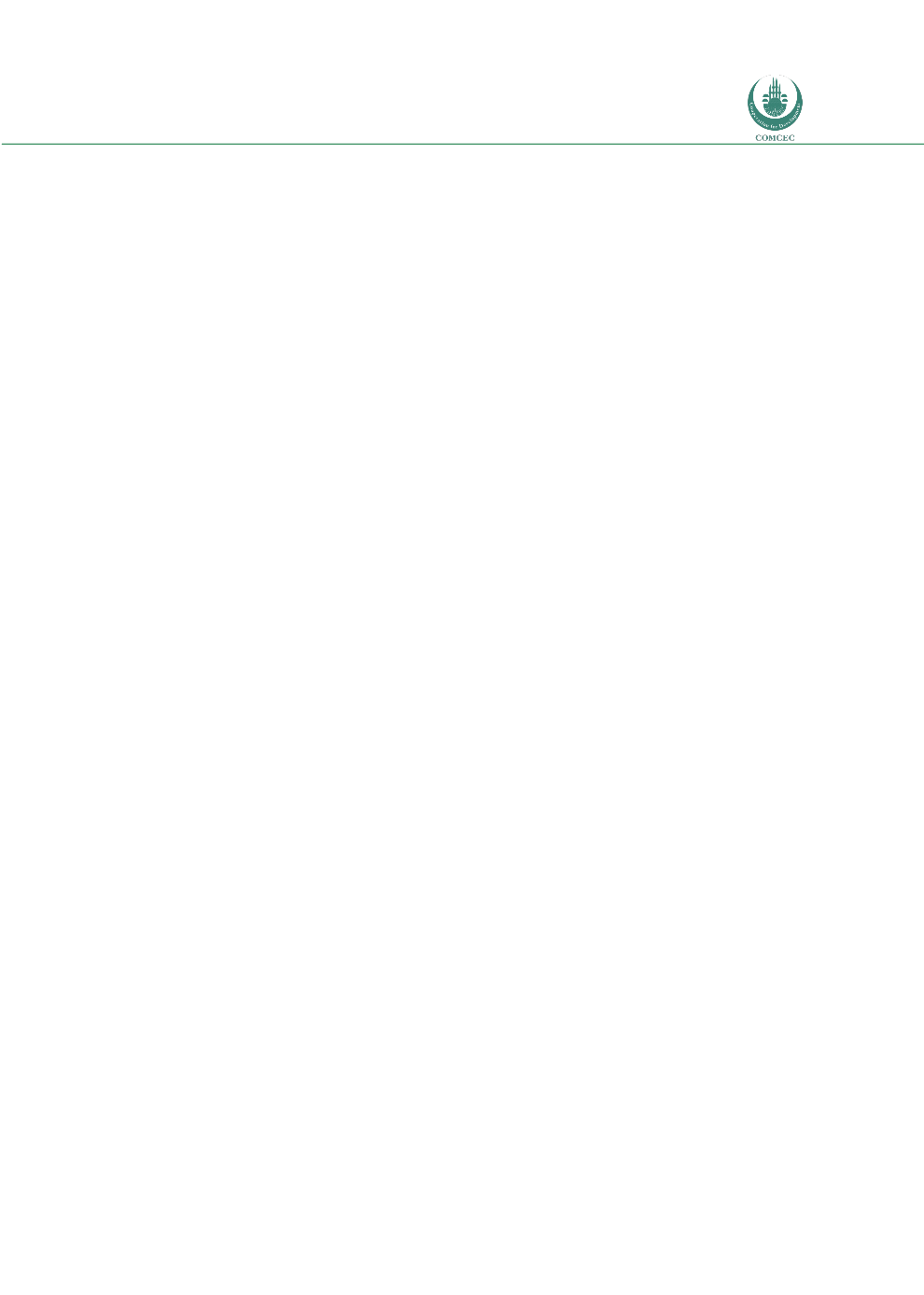

Risk Management in
Islamic Financial Instruments
49
The future of Islamic finance institutional development is focused on producing a strong and
highly capitalized IIFS, building the human capacity with expert finance professionals and
management teams, having an active inter-bank market, and expanding the knowledge base of
consumers (
10 Year Framework
51). ” For example, the IFSB Council, Technical Committee and
other working groups are focused on improving the human capital and technological
capabilities of Islamic finance (A Mid-Term Review 98). Since the creation of the Islamic
Development Bank in 1975, several financial institutions have established themselves as
critical members of the industry with specific expertise regarding areas of Islamic finance.
The International Islamic Centre for Reconciliation and Arbitration (IICRA) is an independent,
non-profit organization that mediates disputes between financial or commercial institutions
that applies Shariah principles (
A Mid-Term Review
99). Most recently, in 2010, the
International Islamic Liquidity Management Corporation was created to facilitate cross-border
Islamic liquidity management (GIFF 2012 12).
3.3. INFRASTRUCTURE DEVELOPMENT
The Islamic finance infrastructure includes payment settlement systems, financial markets and
products, support facility providers, legal institutions, regulators and supervisors, Shariah
governance institutions, standard setters, ratings agencies, data collectors, knowledge
management and human resource development programs, and research and development
entities (
10 Year Framework
5-6). Traditionally, legal infrastructure is necessary to support
operations and growth and mitigate negative business practices, such as collusion and
anticompetitive behavior. A legal framework allows for certainty and legitimacy of financial
contracts as well. However, in Islamic finance, legal infrastructure is especially important to
enforce Shariah principles. As further evidence of the pertinence of Shariah, another piece of
Islamic finance infrastructure is the Shariah Board. The Shariah Board is the primary
adjudicator of all transactions regarding financial matters and their relevance to Islamic law. It
is necessary to have accounting and auditing tools. Regular and reliable financial reporting
reduces information asymmetry and allows companies in the industry to be compared to one
another
.
Similarly, rating agencies give investors the ability to compare companies from an
unbiased, independent perspective (GIFF 2012 13).
Since most IIFSs today are small, industry experts have emphasized diversification and
specialization of instruments. The Accounting and Auditing Organization for Islamic Financial
Institutions (AAOIFI) and the Islamic Financial Services Board (IFSB) focus on strengthening
the CG of IIFS. The International Islamic Financial Market (IIFM), the International Islamic
Rating Agency (IIRA), the International Islamic Centre for Reconciliation and Commercial
Arbitration (IICRA), the General Council of Islamic Banks and Financial Institutions, and the
Islamic Development Bank Group (IDB) support the development of infrastructure to
implement Islamic finance (ISRA 5).

















